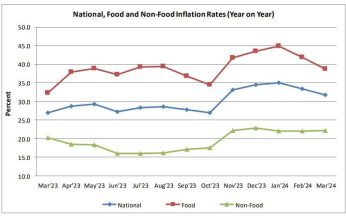Recognising role of women in male-dominated construction sector
They may be neglected in society or deemed not that all influential. But the fact remains that the global world is becoming dynamic with women now taking up influential but challenging top-notch jobs in society.
And Forbes, American’s business magazine gives a vivid phenomenon on how women have taken the world by storm.

The 2014 most powerful women, according to 2014 Forbes compilation, features nine heads of State who run nations with a combined gross domestic product (GDP) of $11.1 trillion with 641 million citizens— including the number one woman, German Chancellor Angela Merkel.
But although women have swiftly challenged the world that they are able-bodied to be on equal footing with men in executing some duties, there are other sectors that are predominantly male-dominated.
One such sector is construction. The global construction sector speaks volumes of a sector, which is nothing but purely dominated by males.
Just recently, the United Kingdom’s The Guardian newspaper carried out a heart-rending but inspiring story of a lady Katie Metcalf, a senior associate at Gardiner & Theobald LLP, an independent construction and property consultancy.
She is currently raising awareness and campaign to get more women following in her career footsteps.
“I don’t know why so few women are attracted to a career in construction, but I think it’s partly due to a lack of awareness about the interesting and varied career opportunities and partly due to the perception of the industry being male-dominated and muddy,” she said.
Narrowing down to Malawi, the country is no exception as very few women are currently practising their respective careers in the construction sector.
Business Review engaged one of very few women who is plying her trade in the construction sector to get a glimpse of her perception on the male-dominated sector.
Her name is Miranda Nkunika, an architect at the Malawi Housing Corporation (MHC).
She believes that in Malawi, women in construction industry are few because, among others, because the sector is perceived as a difficult field in terms of training.
“It is generally difficult to do business in this field. The business environment is especially challenging for women,” she said on Tuesday.
Nkunika said her opinion is generally based on women in the industry doing business such as engineers, architects and quantity surveyors other than contractors.
But she is optimistic that such a pathetic trend can be reversed by doing a lot of publicity at secondary school level to encourage female students to vie for such jobs.
On the one hand, she puts the blame on government and developing partners for creating a situation where men outnumber women in construction sector.
“The other issue is for the government and development partners to deliberately support women in this field. There is a glaring gap of women in decision making positions in this field.
“There are very few scholarships for post-graduate courses for women in this field as compared with other fields such as law medicine,” she said.
Nkunika has a strong conviction that women have contributed a lot in the industry, citing women engineers in irrigation, transport sector, housing, urban planning, architecture that have formed part of transforming Malawi.
“As a woman architect, I feel my greatest advantage is that I have an emotional touch when designing buildings because as a woman culturally I am more in touch with the social side of people thus our designs are not just mechanical,” she added.
Confirming Nkunika’s side of the story, a database of contractors provided by the Millennium Challenge Account- Malawi (MCA-M) and compiled by the National Construction Industry Council of Malawi (NCIC) is clear as it shows few registered women in the construction sector.
The analysis of the database shows that there are 777 list of registered contractors with NCIC out 54 companies are owned by women.
It is against this background that the Millennium Challenge Cooperation (MCC) developed a gender policy and guidelines to facilitate the integration of gender into compacts by the recipient countries.
According to MCA-Malawi concept note for the 2015 Women’s Day, made available to Business Review and dedicated to women in the construction sector, all over the world, women play a critical role in contributing to global economies in both developed and developing nations.
International Women’s Day is a time to reflect on progress made in gender equality and celebrate women’s advancement as well a time to call for change and a concerted effort for greater gender equality.
“In achieving the Malawi Compacts’ goal of ‘Reducing poverty through economic growth’, there is need to continuously highlight the role that women can and continue to plan in the Malawian society so that this goal can be realised in a sustainable way,” says MCA-Malawi in the write-up.





